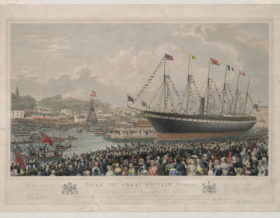French revolution
The French revolution was a period of major uprising and upheaval for France, between 1789 and 1799, when the people fought for greater equality and representation against the ‘ancien regime’ – a long-standing system where the monarchy, aristocracy and Catholic Church held absolute power and privilege over ordinary people. The period was chaotic and brutal as France fought internally as well as with other nations in the struggle for a fairer constitution. During this time, the monarchy was overthrown, the Church disestablished and France declared a republic, sending Louis XIV and his despised Queen Marie Antoinette to the guillotine. Thousands more were executed at the guillotine, which became an enduring symbol of the events of the time. The revolutionary ideas unleashed by the French Revolution – among them liberté, egalité, and fraternité, influenced countries and peoples far and wide, setting up a new model for what revolution looked like and the powerful effects it could achieve. It sent shockwaves of fear through the British establishment, who inflicted harsh punishments on those who sought to protest or campaign for reform in the coming decades.















